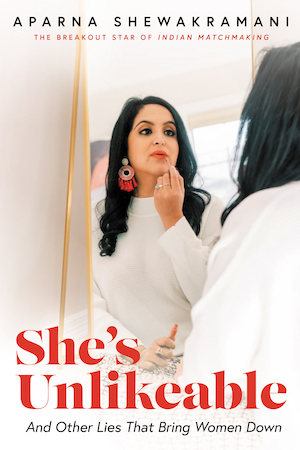Sponsored by Chicago Review Press.
When Aparna Shewakramani appeared on Netflix’s hit series, Indian Matchmaking, it became clear that Aparna knew what she wanted. But stories are told through certain lenses—and her story is no exception. Being on a reality show made Aparna feel like a character. Her decisiveness and sense of self-worth led viewers to see her as a very specific archetype: The villain. It turned around, though, with a single message of support: Be Like Aparna. Women are tired of seeing other women being vilified simply because they have a voice. In this book, you will learn about the real Aparna Shewakramani.
Welcome to In Reading Color, a space where we focus on literature by and about people of color.
I feel like History, as it’s mostly presented North American media, tends to focus on the same few topics from white men’s perspectives. This has, of course, gotten better in recent years, but I’m still amazed at how so many movies, shows, and books still like to focus on the same few topics (I know enough about WWII, okay?!), especially whenever I first learn of some major historical moment or figure that I had never heard of before. My most recent mindblown-by-history moment came as I was gathering books for the latest Hey YA Extra Credit episode (which airs tomorrow, January 26th) where I discussed YA books with activism. Because of Banned Book Club by Kim Hyun Sook and Ryan Estrada, I first heard of the military regime that ruled over South Korea in the ’80s.
Here are a few more books that take you to interesting places in history that should be talked about more:
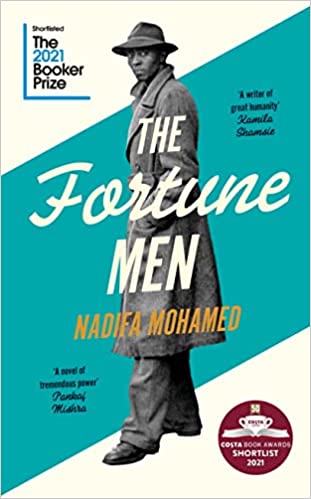
The Fortune Men by Nadifa Mohamed
In 1952, Mahmood Mattan was accused of murder and eventually executed in Wales. This was par for the course for murder cases at that time, so why was this significant? Because he was innocent. The Muslim Somalian immigrant initially hadn’t taken the charges seriously when a female shopkeeper was murdered and the authorities were looking for someone to pin it on. He had chalked interest in him as the perpetrator up to the same racial prejudice that saw him unable to find work other than being the occasional sailor. Although he had his vices, like gambling —which his Welsh wife had kicked him out for— he always vehemently maintained his innocence in the murder. This is historical fiction, but is based on the true story of the last hanging in Wales.
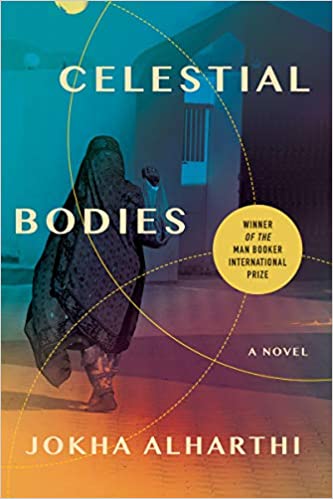
Celestial Bodies by Jokha Alharthi, translated by Marilyn Booth
What do you know of Oman? If you’re like me, next to nothing. And that makes sense when you consider how this is the first book by a woman from Oman to be translated into English. And, uh, this was first published in 2010, with the English translated edition having been published in 2019, so… yeah. If you’re sitting and reading this with a surprised pikachu face, know I had the same face when I first found that out.
Celestial Bodies is a tale of Oman that is both past and present. It shows how the roles of politics, gender, and class factor into the personal through the interworkings of families. We’re introduced to three sisters— Mayya, Asma, and Khawla — who hail from a well-off family, but each have their own views of marriage. We’re shown Mayya’s life, after she marries Abdullah, who was raised by Zarifa— his father’s slave. We also learn of Zarifa’s life, whose mother was born on the day slavery was supposed to have been abolished, and who was later sold as an enslaved teenager and married off to another enslaved person from Africa. The novel takes us through Oman’s pastoral and patriarchal, slave-holding past (slavery having only just been abolished in the country 1970), and brings us into its present.
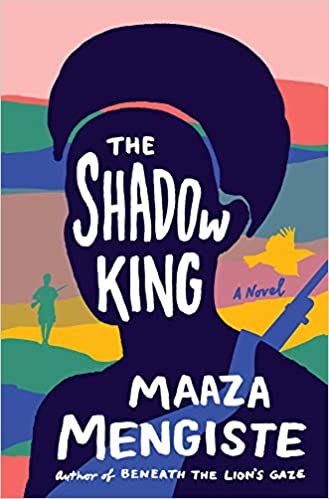
The Shadow King by Maaza Mengiste
The Shadow King shows the fortitude and resourcefulness of one young Ethiopian woman during the second invasion of Ethiopia by Italy in the 1930s, right before WWII. The dark cloud of Mussolini looms overhead as orphaned Hirut tries to adapt to life as a maid in the house of Kidane, an army officer. Kidane’s behavior towards Hirut turns from pleasant to cruel as his sexual harassment of her is met unfavorably. Hirut finds herself in a totally new world living in the officer’s house, and as the war takes shape, she and other women— like Kindane’s wife Aster— want to do more for their country than nurse the wounded.
The titular Shadow King character comes as a result of Hirut’s brilliant idea to replace Emperor Haile Selassie, who has gone into exile, with a lookalike who has been trained to speak and act like him. With Hirut at his side as his guard, a man who was formerly a peasant maintains the morale of his country as the Shadow King, even inspiring more women to join in the fight against the more technologically advanced Italian army.
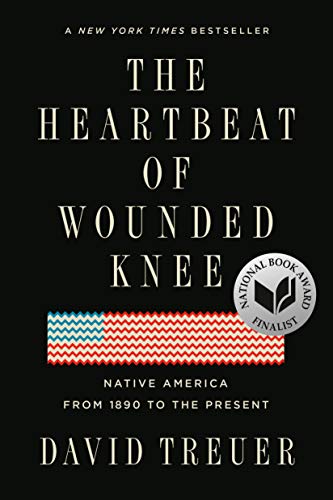
The Heartbeat of Wounded Knee by David Treuer
Bury Me at Wounded Knee gets an update by Treuer. Whereas many people see Native American history as reaching its apex at the 1890 battle, Treuer shows just how rich and varied Native life and history has been since. He mixes reporting with memoir and interviews with elders to show the continued efforts by the U.S. government to destroy Native culture— specifically Ojibwe in Treuer’s case— and seize Native lands, and how this has susequently been met with resistance. One such instance of resistance was the American Indian Movement of the 1970s that was started by urban Native tribes, although it had some trouble gaining support with those living in rural areas. With The Heartbeat of Wounded Knee, Treuer takes what’s commonly thought of as Native American history and fleshes it out, telling a story of continued persecution, resistance, and pride.
Make sure to get your own Read Harder Book Journal from Book Riot to track your reading for the year!
A Little Sumn Extra
Here are the winners for the ALA’s Youth Media Awards, which includes the Newbery, Caldecott, and Printz awards
Little Free Library’s Action Book Club has an environmental theme
Lebron James is producing a series that will be based on The Crossover by Kwame Alexander
Kelly Jensen highlights some interesting metal bookmarks
This article on Khalil Gibran, the third best selling poet in history, and his widely popular book The Prophet
Don’t forget you can get three free audiobooks at Audiobooks.com with a free trial!
Thanks for reading; it’s been cute! If you want to reach out and connect, email me at erica@riotnewmedia.com or tweet at me @erica_eze_. You can find me on the Hey YA podcast with the fab Tirzah Price, as well as in the In The Club newsletter.
See y’all!
-E
